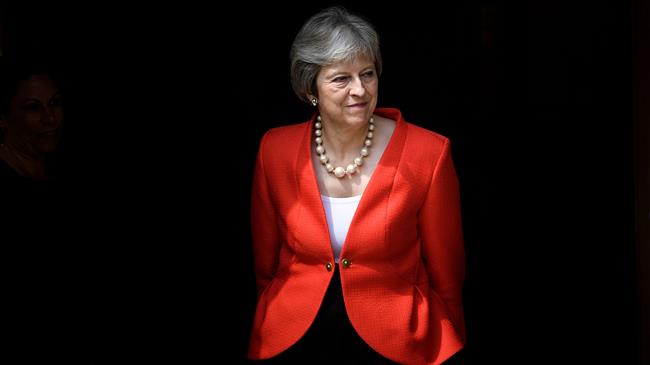UK: Conservative rebels renew push to oust Prime Minister Theresa May
Theresa May has come under fresh pressure as Tory MPs have begun mobilizing against the embattled prime minister, claiming there are now enough letters calling for her resignation.
Under Conservative rules, at least 48 letters from MPs must be sent to Graham Brady, the chair of the 1922 Committee of backbenchers, to trigger a vote of no confidence in May’s leadership of the party.
The latest Conservative MP to submit a letter was Owen Paterson, whose letter fueled speculation about an imminent leadership challenge.
In his letter, published in The Daily Telegraph, the former cabinet minister said that May’s way of the Brexit negotiations “eroded trust in the government, to the point where I and many others can no longer take the prime minister at her word.”
Meanwhile, ex-leader Iain Duncan-Smith said, “I do detect that in the last 24 hours people have decided that this isn’t going to work out at all.”
“I have heard from a number of colleagues, I can’t name them now, they were people that wouldn’t have put letters in, are now openly saying ‘do you know what, my letter is going in’.”
“I don’t know what that means for numbers. All I can say is, I sense a mood shift here. The prime minister has to resolve that very swiftly with some very bold words and very bold action.”
Although there were similar reports last month, a no-confidence vote was never launched. Now, whether sufficient letters have been submitted or not cannot be known unless announced publicly by Graham, who is duty bound to give May an 48 hours’ notice.
May has been criticized over her handling of Brexit and her refusal to allow parliament a vote on her plans to pull the UK out of the European Union.
The prime minister took a tour of European capitals on Tuesday in a bid to secure any type of concession that could give her plans a chance of winning parliament’s approval.
On Monday, May said she was hopeful EU leaders could accept her demands for more “assurances” and “reassurances” on the so-called backstop, a clause that would be triggered two years after Britain’s withdrawal from the EU in March if the two sides fail to reach a comprehensive agreement on future trade relationship.
Critics believe the backstop could tie the UK to EU indefinitely, as the bloc would include the British province of Northern Ireland in its customs union to prevent a return of hard border between the region and Ireland.
Source: Presstv






